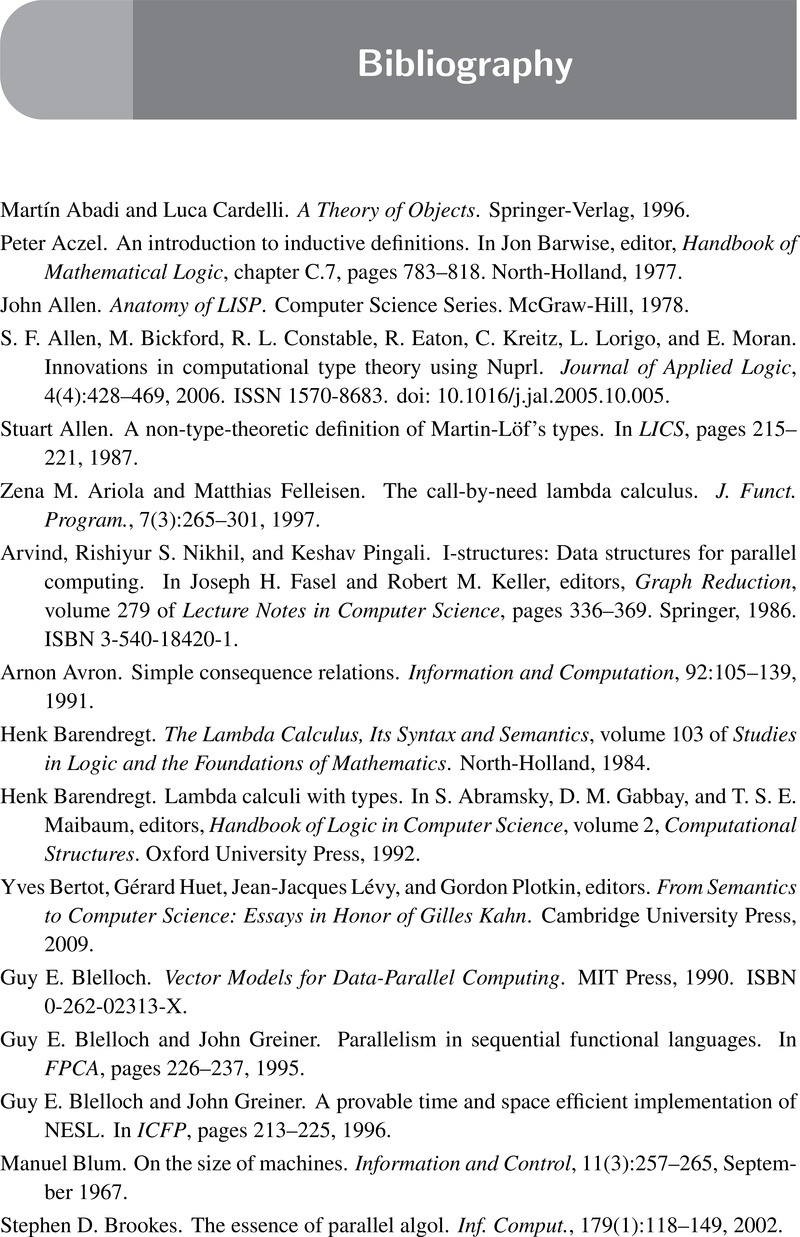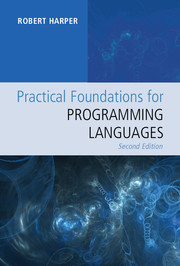Book contents
- Frontmatter
- Contents
- Preface to the Second Edition
- Preface to the First Edition
- Part I Judgments and Rules
- Part II Statics and Dynamics
- Part III Total Functions
- Part IV Finite Data Types
- Part V Types and Propositions
- Part VI Infinite Data Types
- Part VII Variable Types
- Part VIII Partiality and Recursive Types
- Part IX Dynamic Types
- Part X Subtyping
- Part XI Dynamic Dispatch
- Part XII Control Flow
- Part XIII Symbolic Data
- Part XIV Mutable State
- Part XV Parallelism
- Part XVI Concurrency and Distribution
- Part XVII Modularity
- Part XVIII Equational Reasoning
- Part XIX Appendices
- References
- Index
- References
References
Published online by Cambridge University Press: 05 March 2016
- Frontmatter
- Contents
- Preface to the Second Edition
- Preface to the First Edition
- Part I Judgments and Rules
- Part II Statics and Dynamics
- Part III Total Functions
- Part IV Finite Data Types
- Part V Types and Propositions
- Part VI Infinite Data Types
- Part VII Variable Types
- Part VIII Partiality and Recursive Types
- Part IX Dynamic Types
- Part X Subtyping
- Part XI Dynamic Dispatch
- Part XII Control Flow
- Part XIII Symbolic Data
- Part XIV Mutable State
- Part XV Parallelism
- Part XVI Concurrency and Distribution
- Part XVII Modularity
- Part XVIII Equational Reasoning
- Part XIX Appendices
- References
- Index
- References
Summary

- Type
- Chapter
- Information
- Practical Foundations for Programming Languages , pp. 479 - 486Publisher: Cambridge University PressPrint publication year: 2016



